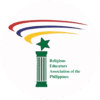What defines a frontier?
A frontier may be a physical border, an intellectual task to be resolved, or an unexplored expanse waiting to be explored. In Catholic practice, a frontier is “mission” which suggest pioneering work in new territories and new endeavors. In education this can include unexplored areas for understanding in teaching and learning. For Religious Education, it can be a “mission field” or a subject of interest that solicits understanding, analysis and reflection as it applies to students’ religious beliefs, dispositions and formation. These mission fields may include new technologies, arts and music, culture, human formation, values formation, justice and peace, dialogue, and ecology. Given that Catholic schools are collaborators in church mission, how do these fields affirm the mission of evangelization shared by the church with Religious Education? In view of this theme, we hope to invite discussions on any of the following areas of study:
Papers are invited to investigate about: (sub-themes)
- Designing content for children with learning disabilities
- Spirituality, religiosity and well-being of students
- Religious identity development
- The nexus of teaching, learning and faith catechesis, human/values formation, etc.
- Youth sub-culture and faith
- Eco-feminism, ecology and Religious Education
- Faith and social media
In addition, relevant graduate thesis and dissertation is invited for presentation in parallel panels.
Please submit your extended abstract:
- When submitting, please consider which sub-theme are you addressing your study.
- Maximum-250 words.
- Your abstract should briefly include: introduction, research intent, design (if possible) or framework and method, results, or original contribution.
- Please include at least five key words.
- If there is more than one author, indicate the corresponding author who will receive and communicate with the secretariat regarding participation. Also, kindly include all the names of co-authors with corresponding affiliation. For co-authored papers only the presenting author shall submit a brief bionote.
- For single authors: Upon submission, kindly include a brief bionote (100 words) describing your institutional affiliation and rank, research interest and research engagements in and outside the school.
Deadline of Abstract submission: January 31, 2025 (send to: nccre.dlsu@gmail.com)
Notice of Abstract Acceptance: February 29, 2025 Some papers maybe invited for publication in the December issue of HITIK, the International Journal for Catechists and Religious Educators, online.
CPD points are available through participation in NCCRE 2025.
Link & QR code for Online Registration:
https://forms.gle/5a44XK24KKb57Jsx8
Conference Fee: Early (Till March 30, 2025)
REAP member: P 2,500;
Non-member: P 2,700
Regular Fee (April 1,2025 onwards)
REAP member: P 3,000;
Non-member: P 3,200
Group of Ten Package: [10 REAP member/non-member (Early or Regular fee) plus 1 Free]
Please make the payment to:
Account name:
HOLY ANGEL UNIVERSITY, INC.
BDO SA #5230-00325-2 (Miranda branch, Angeles City)
For Inquiries:
DLSU, Manila-85244611 (loc. 534)
Email: nccre.dlsu@gmail.com

